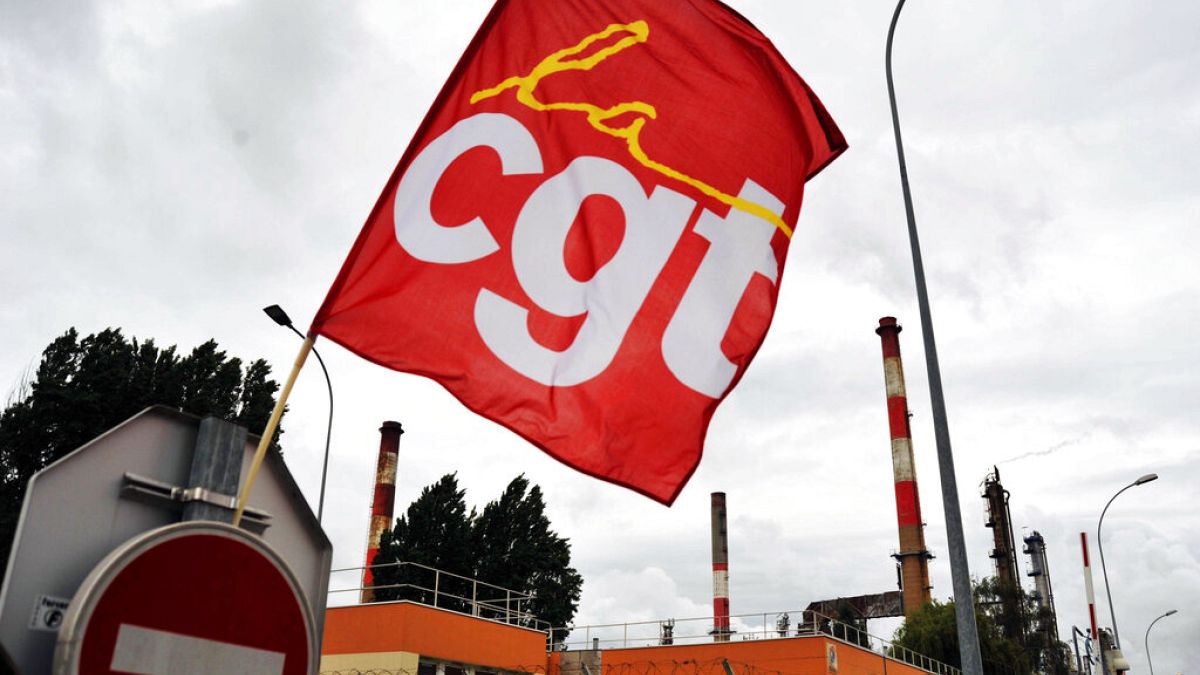The European Commission is considering imposing heavy tariffs on Chinese electric vehicles, sparking protests among French and international automobile industry workers. The Paris Motor Show was the backdrop for the protest, with banners denouncing the crisis impacting automakers in France and the EU. Key players like Stellantis, Renault, and Valeo have been cutting jobs and relocating production overseas, causing fear and uncertainty among workers. The flood of cheap Chinese electric vehicles in the EU market has further exacerbated the situation, with the EU Commission looking to impose tariffs in response. However, workers and labor unions believe that this is not the solution and are calling for French manufacturers to bring production back to France.
Workers at the protest expressed concerns about the impact of job losses in the automobile industry in France and across Europe. The closure of factories and the relocation of production overseas have left many workers anxious about the future. The influx of Chinese electric vehicles in the EU market and the subsequent drop in prices have added to the challenges faced by European automakers. While the EU Commission is considering imposing tariffs on Chinese electric vehicles, workers believe that the focus should be on encouraging French manufacturers to increase production in France and lower profit margins. The sentiment among labor unions is that the current crisis in the automotive sector is a result of insufficient effort and resources allocated to industry development in Europe.
The protest in France highlighted the solidarity among European workers in the face of widespread job losses and factory closures in the automotive industry. Labor unions from countries like Germany, Belgium, the US, and Turkey came together to voice their concerns about the crisis affecting automakers in Europe. Workers emphasized the need for a more sustainable solution than imposing tariffs on Chinese electric vehicles, calling for French manufacturers to prioritize domestic production. The bleak outlook for the future of the industry has prompted workers to demand more support and investment from European governments to ensure the survival of the automotive sector.
The impact of the automotive crisis is being felt across Europe, with job losses and factory closures reported in countries like Belgium and Italy. The closure of the Audi Brussels plant in Belgium, which will result in 3,500 job losses, is just one example of the challenges faced by European automakers. Labor unions from different European countries have united in their call for stronger government intervention to support the industry and protect jobs. The lack of investment in industry development has led to a grim outlook for the future, with workers expressing concerns about the long-term viability of the automotive sector in Europe.
The protest at the Paris Motor Show brought attention to the urgent need for action to address the crisis in the European automotive industry. Workers and labor unions are calling for a more sustainable solution than imposing tariffs on Chinese electric vehicles, urging French manufacturers to increase production in France. The flood of cheap Chinese electric vehicles in the EU market has exacerbated the challenges faced by European automakers, leading to job losses and factory closures. The united front presented by European workers at the protest highlights the solidarity and determination to fight for the future of the automotive sector in Europe.
In conclusion, the protest at the Paris Motor Show served as a wake-up call for the European Commission and governments across Europe to prioritize the protection of jobs in the automotive industry. Workers and labor unions have come together to demand more support and investment to address the crisis affecting European automakers. The focus is on finding sustainable solutions to the challenges faced by the industry, rather than resorting to tariffs and other short-term measures. The call to bring production back to France and support domestic manufacturing reflects the determination of workers to secure the future of the automotive sector in Europe.











